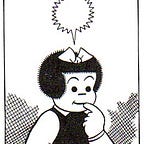NAMES
The Five Types of Brand Names
To the average civilian, the concept of name taxonomies or categories is vague at best. Unless you’re a naming professional, you probably think of corporate and product names as short or long, trendy or stale, available as an internet domain or not. And that’s about it.
Those categories are more or less irrelevant in the eyes of the U.S. Patent and Trademark Office (USPTO), which classifies names according to a spectrum of distinctiveness. “Distinctive” has a specific legal meaning here: the more distinctive a name, the greater its potential for legal protection in the form of trademark.
The spectrum of distinctiveness runs from generic on one end to fanciful on the other. In between are descriptive, suggestive, and arbitrary trademarks.
Knowing about trademark distinctiveness and types of names can help you become a smarter judge of business names — your own and others’. Here are the basics.
Generic names identify an entire class of products or services; they are the weakest of all names and cannot be granted trademark protection. That doesn’t mean generic names don’t exist. You may have seen generic labels in the supermarket: “Cigarettes,” “Milk,” “Dog Food.” You’ve also seen them online: Hotels.com, Cars.com, Vibrators.com.
